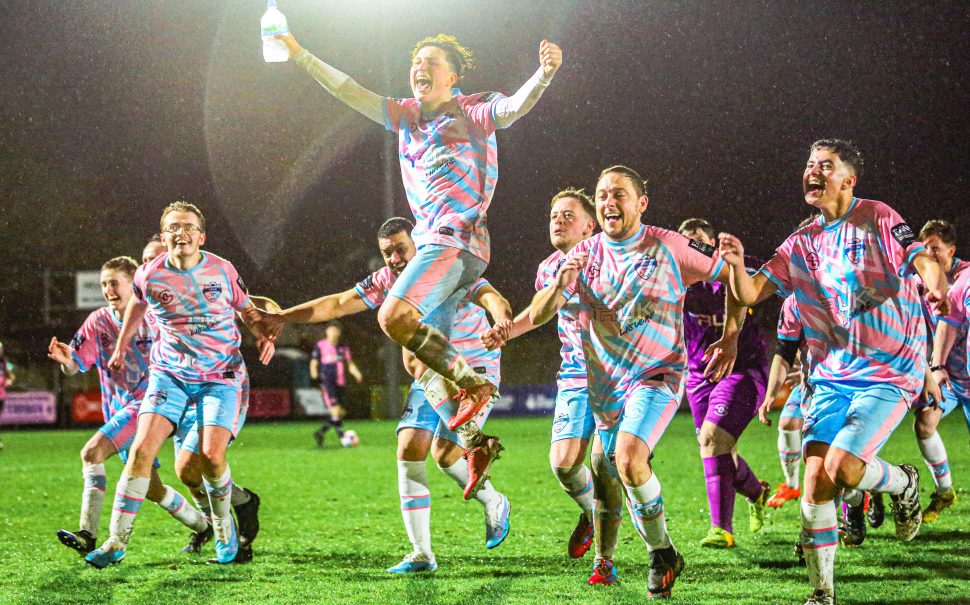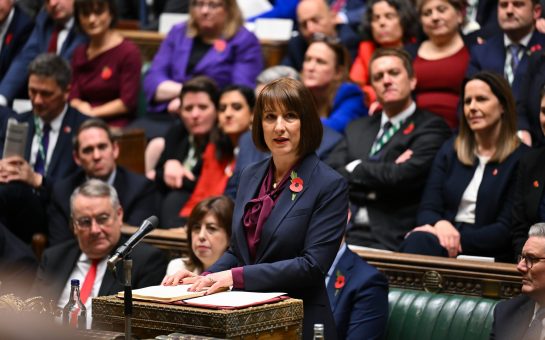In a society that is increasingly suppressing trans people’s participation in sports, TRUK United FC has become a beacon of inclusion.
The footballers met their new team-mates for the first time shortly before kick-off.
Within two hours, they had made history – becoming the world’s first-ever trans men’s 11-a-side team.
“We didn’t even know each other’s names before we all got to the changing rooms,” said Arthur Webber, captain of the team that night.
On a rainy evening on March 31 – officially Trans Day of Visibility – TRUK United FC ran out in front of 500 paying fans at a rain-lashed Champion Hill in Southwark to take on Dulwich Hamlet Supporters Team.
The team lost 8-1, but the night certainly didn’t feel like a loss.
“It was about breaking the barrier, more than winning.” said Arthur.
TRUK (Trans Radio UK) United FC was formed in September 2021 when Lucy Clark, who had gained recognition as the first-ever transgender referee, was contacted by trans people across the country interested in playing football.
“I had loads of people saying to me that they love football, and they wished there was a football team for them,” said Lucy.
“I would tell them that there’s plenty of teams out there that they can play for. And the FA guidelines say they can play.
“But people were just like, ‘I won’t be accepted.’”
So Lucy established the club with one main goal, to provide an inclusive environment for trans people to play football. An inclusive team, with no gender restrictions, and a trans women’s team – which was followed this spring by the creation of a trans men’s team.
The club comprises players from across the country, and though they are based in London, they have played in cities such as Glasgow and Manchester as well.
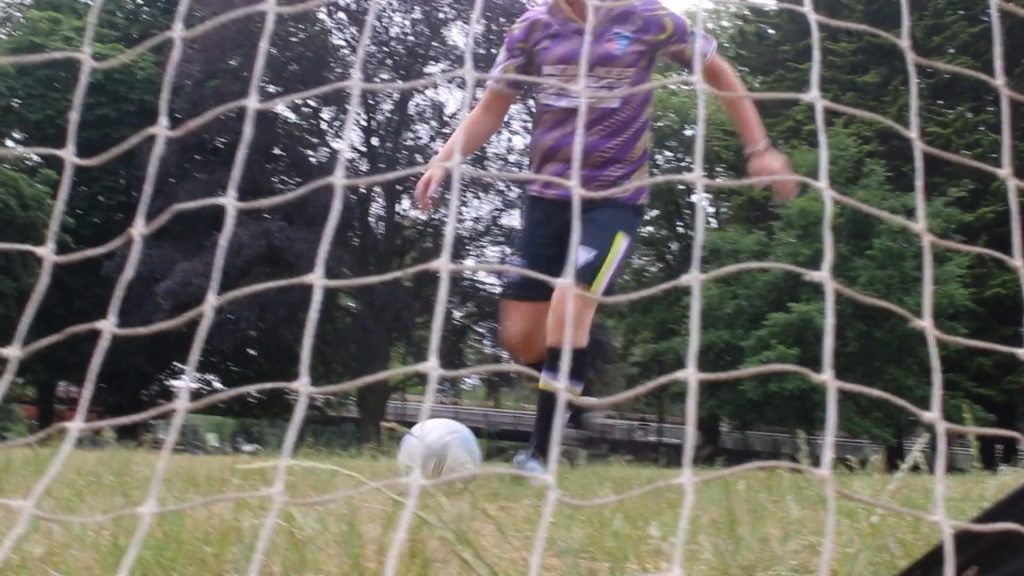
“I believe that obviously at grassroots, anyone should be able to play sports, especially trans people,” said the 51-year-old referee. “It’s good for your physical health, and it’s good for your mental health.”
Which is why the recent exclusions of trans people from sport have been controversial.
Increasingly sports organisations in the UK are prohibiting trans people, and specifically trans women, from competing against cis people of the same gender out of concerns for fairness.
There has been widespread media debate about trans athletes competing in sports. Several organisations, across many sports like rugby and swimming, have introduced new regulations specifically for trans and non-binary people.
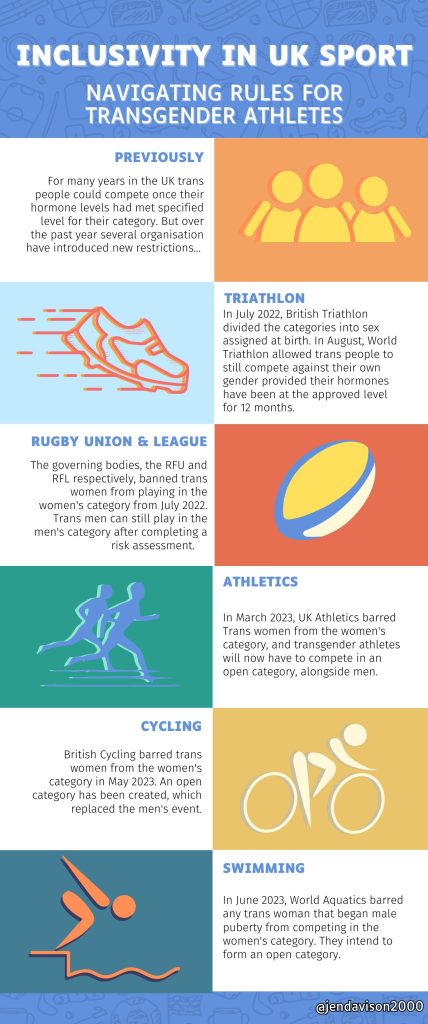
Since 2004 the International Olympic Committee has allowed trans people to compete against cis people of the same gender, and since then only four trans and non-binary people have competed, with the only medal winner being Quinn, a midfielder of the Canadian soccer team.
And a new report from the Sun showed that leaked guidance to schools, expected to be revealed soon, would ban any student who is questioning their pronouns from competing in school sports.
“I’m a massive advocate for trans people to play sports,” said Lucy. “I’m also a realist, and I also believe in fairness.
“People just need to realise that and then we need to have some common sense. And some common ground.”
While debate rages at elite level about trans athletes, the knock-on impact at local level is unquestionable.
Kat Saskia, a striker on the TRUK United’s women’s team, said: “I ended up stopping because of transitioning, I didn’t really know my place in football.
“TRUK United creates a safe and welcoming environment for trans people in sports, because of how they involve trans people, non-binary people, and anyone who wants to play football.”
Kat played for the trans women’s team during their rematch against Dunwich Hamlet’s Women’s team on the same evening the club’s trans men team made their debut. Having lost 7-0 to the same side a year earlier, this time they were only edged out 1-0.
“Which is an improvement,” said Kat.
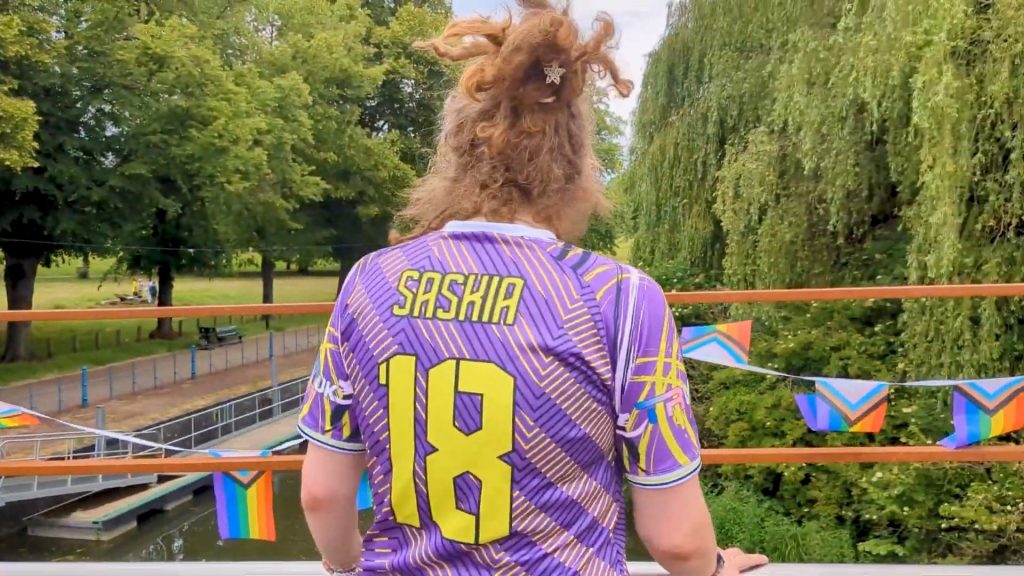
The club has gained a lot of traction online, especially since their matches on March 31.
A picture taken during the game of the men’s team celebrating after Parker Dunn scored their first, and only, goal has been viewed by millions of people on social media.
And the ground-breaking outfit’s supporters aren’t limited to the one country – they’ve been written and talked about internationally and their kits have been worn by fans around the world.
“We got 227 players that have signed up to play for TRUK, literally all over the UK,” added Lucy.
“Ultimately, we want to have a five-a-side team in every county across the UK, so everyone can get a chance to play for us.”
Nine people in Manchester have already signed up.
Arthur, who assembled the first trans men’s team, shares Lucy’s vision.
Having called on players from all over the country for their debut – with one even flying in from Perth, Scotland – he hopes that soon people won’t have to make the same trek to play for the club.
“I don’t want trans people to have to move to big cities in order to have access to this type of thing,” he added.
“Ideally, at least there’ll be something in their region that they’ll be able to access, rather than always London or Manchester.”
Main image from Lucy Copsey.
